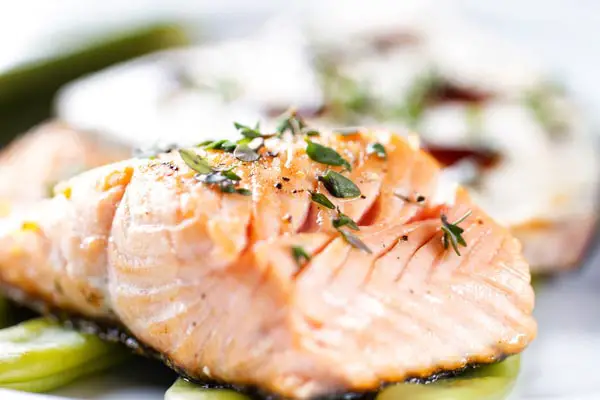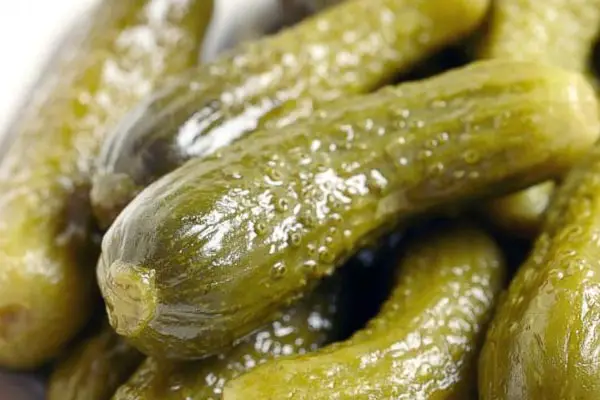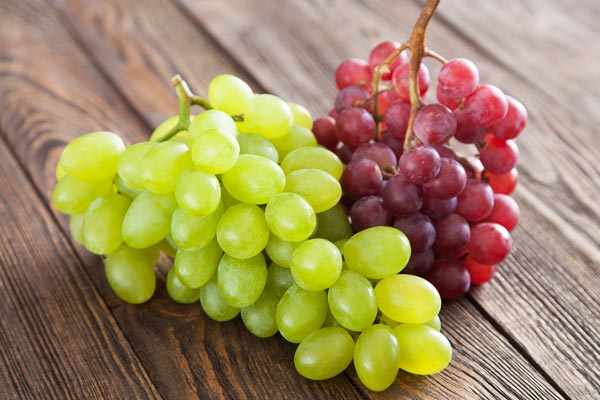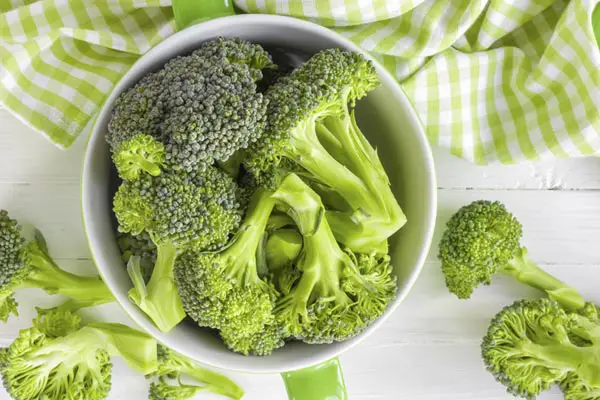Should My Dog Eat Salmon?
Many fishing enthusiasts know: if summer, it’s the salmon season. There’s nothing quite like heading out on a boat with your friends, family members, and as a pet owner, maybe even your dog, to catch something delicious to eat for dinner or preserve in various ways for later consumption.
Amongst the types of fishes hobby fishers aim for, salmon are highly a sought-after prize due to their fantastic taste and incredible health benefits.
Indeed, salmon is a powerhouse of vitamins, minerals, proteins, and fatty acids that can sculpt your muscles, plump your skin, and make your hair strong and voluminous.
Undoubtedly, you have been wondering whether these incredible health benefits apply to your dog too; if you should share salmon with them on your fishing trip or later when it’s been cooked or canned.
Perhaps your pet didn’t wait for your approval and tasted some raw, freshly-caught salmon.
This article aims to help you answer all your questions about the safety, health benefits, and potential risks of feeding salmon to your dogs.
As a responsible pet owner, you are likely to inquire about any immediate danger your four-legged friend may be in, after consuming salmon.
Let’s begin exploring this topic by finding some in-depth answers right away.
My Dog Just Ate Some Salmon. Is It Dangerous?
Salmon is incredible health food for your dog, every bit as much as it is for you.
If your dog ate cooked or preserved salmon, there is nothing for you to do; enjoy the enormous boost in your dog’s immunity, brain health, stamina, or shiny coat.
Unfortunately, it is not the case if your pet ate raw salmon. As the American Kennel Club explains, raw salmon is likely to contain Neorickettsia helminthoeca, a bacteria that is killed by thorough cooking but otherwise could prove to be fatal.
Furthermore, raw salmon contains many tiny and brittle bones that may cause a choking or intestinal blockage.
Much like in the case of canned sardines, cooking softens these small bones, making them perfectly safe to consume.
If you keep these basic guidelines in mind, your dog should be mostly safe -and quite happy- to eat salmon. Do not ever let them sample your fresh catch, for their health’s sake!
Can I Feed My Dog Salmon Regularly?
The short answer is, absolutely! Salmon is an excellent choice of food; in fact, it is an ingredient that many health-conscious dog food companies use to provide the maximum amount of physiological benefits through your dog’s daily meals.
Feel free to incorporate this delicious and remarkably healthy ingredient into your pet’s diet, on a regular basis.
Is Fish-Based Food a Good Choice to Feed My Dog Regularly?
High-quality seafood is an incredible choice to use to feed your pet on a regular basis. Many sources, however, – including the Dogs Naturally Magazine,- don’t recommend complete seafood- or fish-based diet for dogs due to high levels of toxic chemicals and heavy metals currently present in our waters.
Make sure that your dog’s daily caloric and nutrient needs are met from various sources of protein.
Fish are an excellent choice to add to the variety to choose from; just remember to not to solely feed these as a staple food, regardless of their health benefits.
Is Salmon Healthy for My Dog?
Salmon has plenty of health benefits for your dog if fed carefully, keeping to the previous guidelines.
As the website of Dog Health Coach describes, it is one of the greatest sources of protein and omega-3 fatty acids for your pet, as well as rich in vitamins A, B, D, magnesium, potassium, and zinc.
Here are just a few of the amazing effects of salmon on your dog’s physical well-being:
- helping brain development, brain, and neurological health
- boosting immunity against various diseases
- as an anti-inflammatory, supporting joint health and preventing arthritis
- reducing allergies
- helping to keep your dog’s skin and coat healthy, thick, and shiny
In What Ways Can Salmon Be Bad for My Dog?
If you are worried about the circumstances when salmon may be bad for dogs, you are correct to be cautious. Take a look at the following questions that address the safety of offering salmon to your dog:
What Are the Health Risks of Feeding Salmon to My Dog?
Raw -or not fully cooked- salmon, as previously discussed, is associated with the potential for toxicity that could be fatal, as well as intestinal blockages and choking due to the presence of small, brittle, and rigid bones. Never feed uncooked salmon to your dog to prevent the occurrence of these health dangers.
Can My Dog Have Salmon Poisoning?
Unfortunately, yes. It is one of the serious concerns related to feeding raw salmon to your pet.
According to the website of Pet MD, the presence of the Neorickettsia helminthoeca bacteria could cause various serious and even life-threatening symptoms for your dog, including:
- fever
- diarrhea
- vomiting
- discharge of liquids from eyes and nose
- swollen lymph nodes
If you notice any of the above symptoms, contact your veterinarian right away; it might save your pet’s life.
In fact, if you are aware that your dog ate raw salmon, ask for medical advice, even if there are no signs of salmon poisoning just yet.
Don’t wait for them to emerge; be proactive to protect your furry friend!
What If My Dog Has Salmon Allergy?
As fish -including salmon- are the least allergenic source of protein out there, chances are, your dog will not develop a salmon allergy and will be able to tolerate it without any problems.
In fact, due to its high amount of omega-3 fatty acids, it may even help your pet to overcome already existing allergies.
The source for leading medical information, WebMD explains that dog’s allergies usually manifest in the following ways:
- chronic ear inflammation
- gastrointestinal disturbances: diarrhea, vomiting, or gas
- itchy skin, especially around your dog’s rear end
If you notice any of these symptoms consistently returning after feeding salmon to your pet, please seek the advice of your veterinarian to determine whether it’s indeed the cause of these issues.
How Much Salmon Can My Dog Eat Per Day?
To ensure that your dog enjoys the health benefits of salmon without experiencing the risks of eating too much heavy metal- and chemical-laden seafood, do not overfeed salmon; offer it in moderate portions, 3-5 times a week.
An exception is when you purchase high-quality dog food that contains salmon, which is perfectly fine to consume daily.
If you feed cooked or canned salmon to your dog instead of prepared dog food, remember that the exact amount to offer depends on the size of your dog.
You should count about 4 ounces of salmon per every 20 lbs weight of your dog.
I Have a Puppy; Can They Also Eat Salmon?
Salmon has many outstanding benefits for the developing bodies and brains of puppies, and it is the perfect source of vitamins, protein, and fat they need for maturing into healthy adults.
As long as you remember to never feed uncooked salmon to your puppy, you are safe offering it, starting at a young age.
Keep in mind the recommended portion sizes above. Puppies are usually small, weighing less than adult dogs.
Measure their appropriate portions according to their size to keep the chemical- and heavy metal-content of their meals lower.
I Have a Senior Dog; Is Salmon-Safe for them?
Knowing these benefits, it’s safe to say that a senior dog that is allowed to consume salmon on a regular basis is much more likely to live a longer, fuller, and healthier life, without the typical problems, -such as joint disorders,- most older dogs encounter.
Treat your pet with this delicious food and enjoy quality time with them for a long time to come.
How Can My Dog Consume Salmon?
There are many ways you may consider offering salmon to your dog. Let’s take a look at these again to know which of these are ideal and which are dangerous.
Raw Salmon
It is important to repeat here: never feed raw salmon to your dog. It is not only an unsafe but an unnecessary way to introduce salmon; it’s never worth the risk of a fatal incident when there are so many better opportunities to offer it to your pet.
Pink Salmon
Pink salmon is a species belonging to the salmon family, with mostly similar benefits like any other salmon; therefore, much of the previous guidelines apply.
It is often what goes into canned salmon, which is a perfectly safe food for your dog, on a regular basis.
Cooked Salmon
When offering salmon to your dog, cooking it is likely your best option to provide your pet with the above health benefits with the least amount of work. Safe to feed and simple to make; this method is truly foolproof.
Smoked Salmon
Smoked salmon is not a recommended way to feed salmon to your dog. First, smoking may not kill off all bacterias and parasites, leaving your fish partially uncooked and your pet in danger of fatal salmon poisoning.
Second, smoked salmon is usually preserved with a very high amount of salt, which could also lead to toxicity.
Salmon Skin
Salmon skin should be treated like any other part of salmon: only offer it in a cooked form.
As such, it boasts the same health benefits as the rest of the fish and could become one of your dog’s favorite treat to munch on.
Salmon Oil
Salmon oil provides very similar advantages to feeding the fish itself, except, in a much more concentrated way.
A high-quality salmon oil supplement should offer a vigorous boost of your dog’s health; however, being an oil, if overfed, it could also lead to gas and diarrhea.
When used as a supplement, a small dosage is more than enough. Try counting about 4 milliliters of salmon oil per every 25 lbs weight of your dog.
How to Cook Salmon for My Dog?
When it comes to cooking salmon, feel free to use your favorite method. Cooking, baking, steaming, poaching, roasting, or grilling are all wonderful ways to prepare your dog a delicious meal.
Remember to remove large bones, as well as not to season salmon with salt, garlic, or other spices.
Before offering it to your pet, make sure that your cooked salmon’s internal temperature has reached at least 145 Fahrenheit; this way all bacterias and parasites are going to be killed.
What Is a Great Salmon Recipe for My Dog?
Now that you know the basics of salmon safety and preparation, feel free to experiment and create meals and treats for your four-legged friend.
Use dog-friendly ingredients only and skip spices and salt, especially when working with canned salmon.
Take a look at these tasty, oven-baked dog treats made with salmon and a few other, basic ingredients:
What Other Fish Are Safe for My Dog to Eat?
According to the American Kennel Club, there are many types of fish safe for your dog to eat. Usually, shorter-lived species are recommended due to their lower risk of heavy metal poisoning.
These are the following:
- herring
- walleye
- whitefish
- flounder
- Arctic char
Final Conclusions; Is Salmon Good for My Dog?
Salmon is a wonderful, health-boosting food choice for your dog that can be fed regularly and in moderation.
If you keep the simple safety precautions outlined in this article -by avoiding raw or not fully cooked fish,- your pet will enjoy sharing salmon with you for many vibrant years to come.






